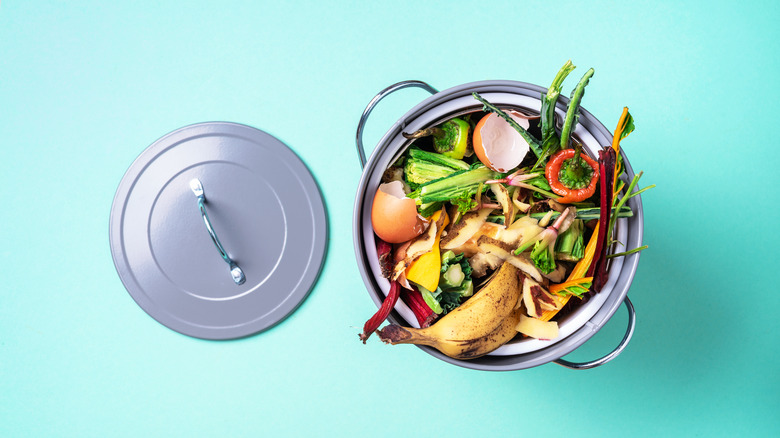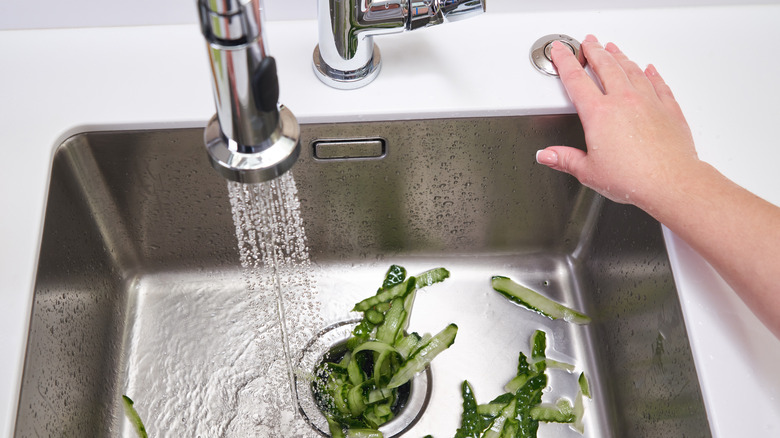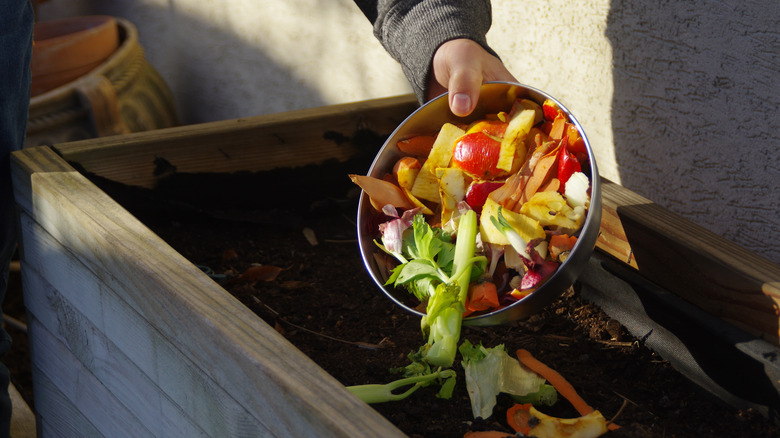These States Waste The Most Food Per Capita
Throwing away a few leaves of wilted lettuce or a moldy half-loaf of bread may not seem like much. But to say that food waste piles up in the United States would be an understatement. The United States Department of Agriculture estimates between 30 and 40% of the country's food supply ultimately goes to waste. Food waste per capita in the United States is lower than that of China and the United Kingdom but still rises above India and Russia, according to data from Forbes. Back in 2015, the U.S. government formally acknowledged the issue and pledged to cut food waste by 50% within a 15-year span (via USDA).
Of course, the country is large and diverse, and, it turns out, not all states eat alike. That means not every U.S. state is producing the same amount of food waste each year.
Vermont, Maine, and Hawaii are top food wasters
A 2019 analysis conducted by the Austin-based company U.S. Packaging and Wrapping estimated that in Vermont, the average person wastes about $1,374 in groceries each year. The study pins Vermont as having the highest per capita cost for wasted groceries, with Maine, Hawaii, and Alaska trailing close behind. According to U.S. Packaging and Wrapping, the company analyzed data from the United States Department of Agriculture, Food and Drug Administration, and Bureau of Economic Analysis among other entities to determine how much each state wasted in groceries.
But state-by-state data on food waste is fairly limited — and studies can be conflicting. Another study, cited by Huffington Post and conducted by Hloom, a company that builds resume templates, estimates that Mississippi wastes the highest percentages of restaurant meals and groceries nationwide. The 2016 study estimates the southern state does away with 11.6% of its restaurant meals, and 14% of its groceries.
How to save, not waste
Whether you're in Burlington, Biloxi, or somewhere in between, there are plenty of ways to cut down food waste in your own home. If you find your blueberries or raspberries become moldy within days of buying them, try submerging them in hot water first to prevent them from spoiling (via Everyday Health). And if you're unsure of how to use up extra fruits and herbs within a short time window, try storing them in the freezer to bulk up smoothies and soups later, as Healthline advises.
As consumers become more conscious of sustainable practices like composting and pickling, some states are enacting legislation to tone down their food waste. In Vermont, a state law prohibits food scraps from making their way into trash bins — according to the Department of Environmental Conservation, residents must compost or drop their scraps off at a designated spot. State officials say the law has posed interesting results: Between 2014 and 2015, the Department estimated that recycling and composting increased by more than 11,000 tons (via Vermont.gov).


